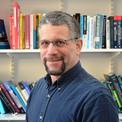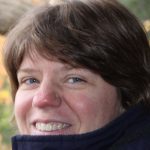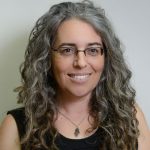Should it be only people with graduate degree who make extraordinary scientific discoveries? Maybe not. Citizen scientists around the world have contributed to new discoveries in fields such as astronomy, biology, meteorology, geography, public health, and more. It can also address social and environmental inequalities, and allow individuals and communities to address issues that concern them through the application of scientific methods and tools. Efforts to harness the work of many hands or crowdsource important data collection or transcription have gained popularity because of their ability to help scientists in tasks that they wouldn’t be able to accomplish, increase public engagement with science, and potentially raise awareness and understanding of scientific issues. They also open up new lines of data in important areas of research, to the benefits of scientists and society. Citizen science requires the participation of ordinary citizens outside of scientific research in universities, governmental bodies, or other research institutions. Participation in citizen science provides individuals with new skills in technology, science, and community organization, as well as informal education on scientific issues. Crowdsourcing can take place as part of citizen science as it relates to large-scale participation that can include tens of thousands of people joining projects online.
Our Geothink&Learn 10 panel brought together experts from Geothink and citizen science to discuss the opportunities, challenges, and implications of these issue areas for scientific research, communication, and education. On Friday, May 11 at 12:00 PM EST, Geothink.ca hosted its tenth monthly Geothink&Learn video conference session on the topic of citizen science and crowdsourcing. It highlighted Geothink’s unique interdisciplinary perspective and included a myriad of ideas from our faculty, students and partners. (Catch a recording of the session along with a transcript of the question and answer session below.)
The convener for the session was Geothink Collaborator Muki Haklay, a professor of GIScience in the Department of Geography at University College London and head of the Extreme Citizen Science (ExCiteS) research group. Other panelists included Victoria Slonosky, principal organizer for ACRE–Canada and the Data Rescue: Archives and Weather Project (DRAW); and, Caren Cooper, a research associate professor at North Carolina State University.
A question and answer session followed after presentations concluded. Our panelists briefly introduced their research and then reflected on citizens science or crowdsourcing.
Download a PDF of this event to share.
Transcript of question and answer session:
1. Thanks Muki. In practice, are there particular groups that participate in citizen science?
Answered orally in session in part. Also answered in written form below:
Caren Cooper: If you are asking about demographic, different styles of citizen science, for different purposes, tends to attract different demographic groups, in terms of race, ethnicity, age, economics….it really varies. Also, there are different hobby groups (birders, astronomy enthusiasts, gamers, etc).
Muki Haklay: Caren covered this a lot – there is a very wide variety in terms of demography (though design and operation influence who is attracted and partcipate in different projects). There is a “default group” – when the design is not done carefully, which are well educated, well off, frequently male participants.
2. Super interesting. Do you have an idea of the data quality for the old records, and do they provide scientists with information that they cannot get elsewhere?
Answered orally in session.
3. Are there any data privacy concerns within citizen science (e.g. volunteered location data or other forms of sensitive personal information)?
Answered orally in session.
4. Does citizen science have to involve active contributions? Or can passive VGI be included also?
Caren Cooper: there are so many ways that people unwittingly contribute data, and citizen science tends to refer to those knowingly share data (whether subsequently passive or not).
5. Question for all participants: how will AI shape citizen science? Do computers reduce the number of potential projects out there?
Answered orally in session.
6. With respect to the privacy issue, is how do private personalized genetics companies like 23andMe fit into the picture, and is there a risk that the concept of citizen science can be used as a marketing angle for for-profit companies that can profit from people sharing their personal information?
Answered orally in session.
7. A question to all participants: are we already witnessing a big advance in science due to citizen science actions?
Muki Haklay: YES! there are some amazing things that couldn’t be done otherwise in terms of geographical coverage etc. Caren’s book is full of examples.
When:
Friday, May 11, 2018 at 12:00 PM to 1:15 PM EST [NOW CONCLUDED]
Where:
https://zoom.us/webinar/register/WN_-FK1F0tXR7-NT_yINu2DKw
After registering, you will receive a confirmation email containing information about joining the webinar.
Convener:
Muki Haklay
Moderator:
Drew Bush
Panelists:
 Muki Haklay: Discussed citizen science in environmental policy making and its implementation at the local and national level. He gave an overview of the “Three Eras of Environmental Information” (Find his paper on this topic here) and how citizen science integrates into public participation in environmental decision making. By looking at the wider context of environmental decision making and the need to use scientific information and analysis to address environmental challenges, we can understand and consider the current and future role of citizen science in this area.
Muki Haklay: Discussed citizen science in environmental policy making and its implementation at the local and national level. He gave an overview of the “Three Eras of Environmental Information” (Find his paper on this topic here) and how citizen science integrates into public participation in environmental decision making. By looking at the wider context of environmental decision making and the need to use scientific information and analysis to address environmental challenges, we can understand and consider the current and future role of citizen science in this area.
 Victoria Slonosky: Addressed two topics: The first is data rescue in citizen science and the role of historical data in science generally. The value and contribution of citizen science is becoming increasingly recognized for historical data rescue or transcription projects. The second topic she discussed is the blurring boundary between professional and amateur scientist: Where are the dividing lines between citizen scientists, well trained amateurs, retired professionals, and working scientists?
Victoria Slonosky: Addressed two topics: The first is data rescue in citizen science and the role of historical data in science generally. The value and contribution of citizen science is becoming increasingly recognized for historical data rescue or transcription projects. The second topic she discussed is the blurring boundary between professional and amateur scientist: Where are the dividing lines between citizen scientists, well trained amateurs, retired professionals, and working scientists?
 Caren Cooper: Spoke on “Addressing tensions between data geoprivacy and openness in citizen science.” Many citizen science volunteers provide location data without autonomy of choice in its use, archiving, re-use, method of obfuscation, etc., nor do many possess Internet privacy and data literacy skills to provide true informed consent to data handling decisions made by research teams or set by mandates. Cooper explored the potential of citizen science projects to build lay language and literacy about the benefits and risks of geoprivacy decisions.
Caren Cooper: Spoke on “Addressing tensions between data geoprivacy and openness in citizen science.” Many citizen science volunteers provide location data without autonomy of choice in its use, archiving, re-use, method of obfuscation, etc., nor do many possess Internet privacy and data literacy skills to provide true informed consent to data handling decisions made by research teams or set by mandates. Cooper explored the potential of citizen science projects to build lay language and literacy about the benefits and risks of geoprivacy decisions.
